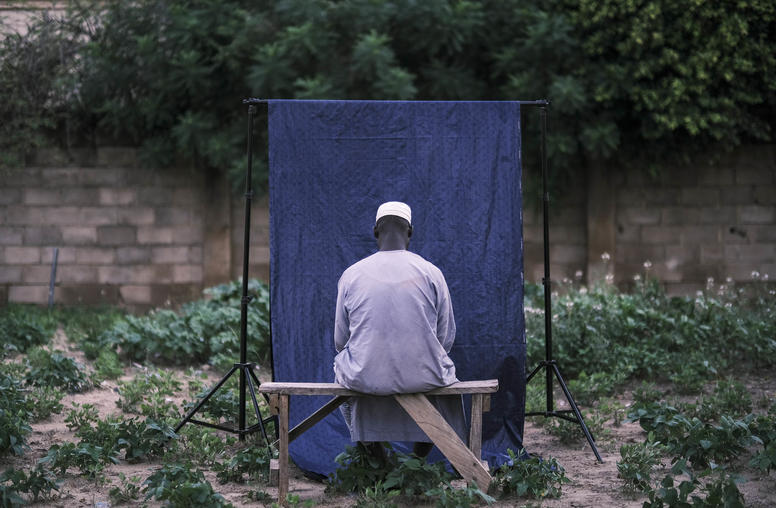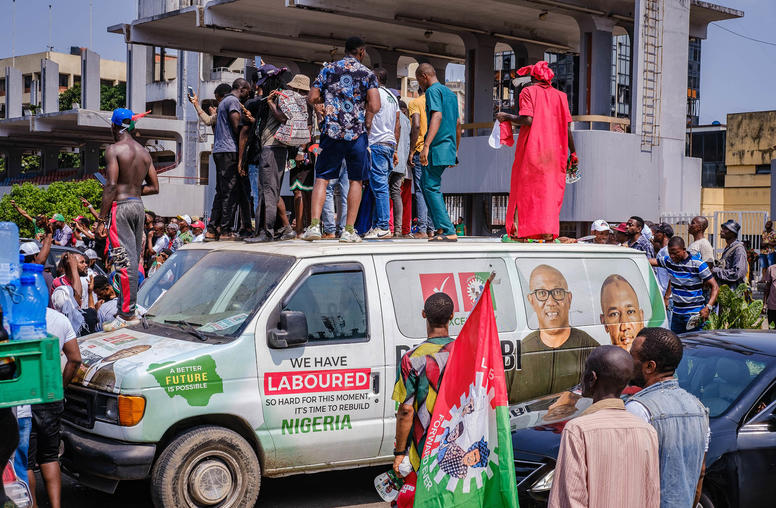Religion and Conflict in Nigeria
Countdown to the 2015 Elections
Nigeria—its vast population evenly split between Muslim and Christian—is counting down to another presidential election, scheduled for February 2015. This report raises a number of questions about the relationship of religious identity and internal conflict and the consequences of a polarized election. Do religious symbols exacerbate or mitigate conflict, especially during an electoral season? What are the interfaith efforts to ameliorate or mitigate ethno-religious conflict? What are the consequences of a polarized election?
Summary
- Nigeria is by far the largest country in the world—with a population of just over 180 million—evenly divided between Muslims and Christians.
- The 2011 presidential election split the country along ethno-religious-regional lines. Thus, concerns for the upcoming 2015 election are widespread.
- Muslims in Nigeria include Sufi, Izala, women’s organizations, student organizations, emirate traditions, and ordinary people, as well as Boko Haram extremists. Christians range from Catholic to mainstream Protestant to Evangelical to Pentecostal to African syncretism.
- The candidates in the upcoming election are the same as in 2011: Muhammadu Buhari for the All Progressive Congress party (APC) and Goodluck Jonathan for the Peoples’ Democratic Party (PDP).
- At the national level, the APC is running on the themes of security and anticorruption, the PDP on the theme of transformation.
- The APC believes that it can sweep seventeen of the nineteen northern states as well as the southwest. The PDP is confident that it can win the south-south and southeast as well as parts of Middle Belt. Such a scenario could set up ethno-regional tensions in the aftermath of the election.
- The presidential election is scheduled for February 14, 2015. State-level elections, including for governors, are set for February 28, creating a possible bandwagon effect after the presidential election for whichever party wins. Postelection court challenges follow. The inauguration is scheduled for May 29.
- Do religious symbols exacerbate or mitigate conflict, especially during an electoral season? What are the interfaith efforts to ameliorate or mitigate ethno-religious conflict? What are the consequences of a polarized election?
- How might recent patterns of extremist violence—with ethno-religious implications—affect this election? The question is framed in the context of broader patterns of religious identity and conflict that have plagued Nigeria’s Fourth Republic.
- Most important will be a national election such that whoever wins, it will stand as a milestone in the quest for democratic practices rather than as a testament to a failed state.
About the Report
Focusing on the political countdown to Nigeria’s upcoming presidential elections, this report assesses the apparent ethno-regional basis of the country’s two national political parties and raises questions about the relationship of religious identity and internal conflict. The report is sponsored by the United States Institute of Peace (USIP), which has a long-term commitment to peacebuilding in Africa.
About the Authors
John Paden is currently Clarence Robinson Professor of International Studies at George Mason University and earlier served in Nigeria as professor of public administration at Ahmadu Bello University in Zaria and as founding dean at Bayero University in Kano. In August 2014, he participated in the Interfaith Initiative for Peace national conference in Abuja, “The Imperative of Interfaith Understanding and Cooperation for Responsible Politics.” An international election observer to Nigeria in 1999, 2003, and 2007, he is the author of numerous publications on the country.



